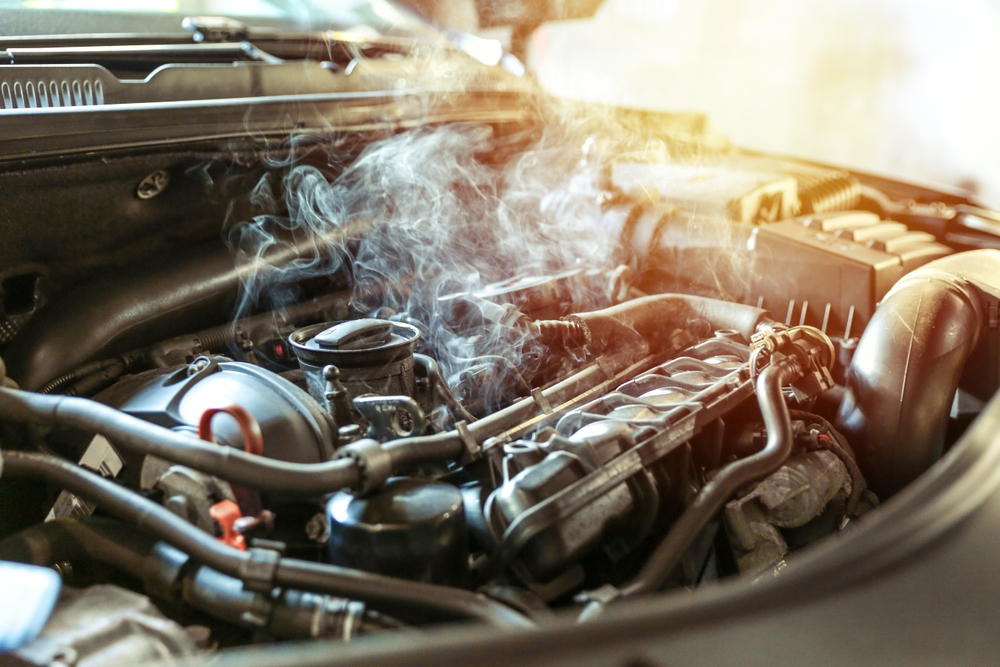Being stranded on the side of the road with steam rising from under the hood is an unpleasant situation that many drivers dread. Engine overheating is a common automotive issue, often leading to severe damage if not resolved promptly. But what causes engines to overheat? Understanding the factors contributing to overheating can help car owners take proactive measures to prevent this problem and maintain their vehicle’s performance.
Engine overheating typically stems from issues within the cooling system or related components. From low coolant levels to blocked exhaust systems, various factors can disrupt the engine’s ability to maintain optimal operating temperatures. This article explores the most common causes of engine overheating and provides preventive measures to keep your vehicle in good condition.
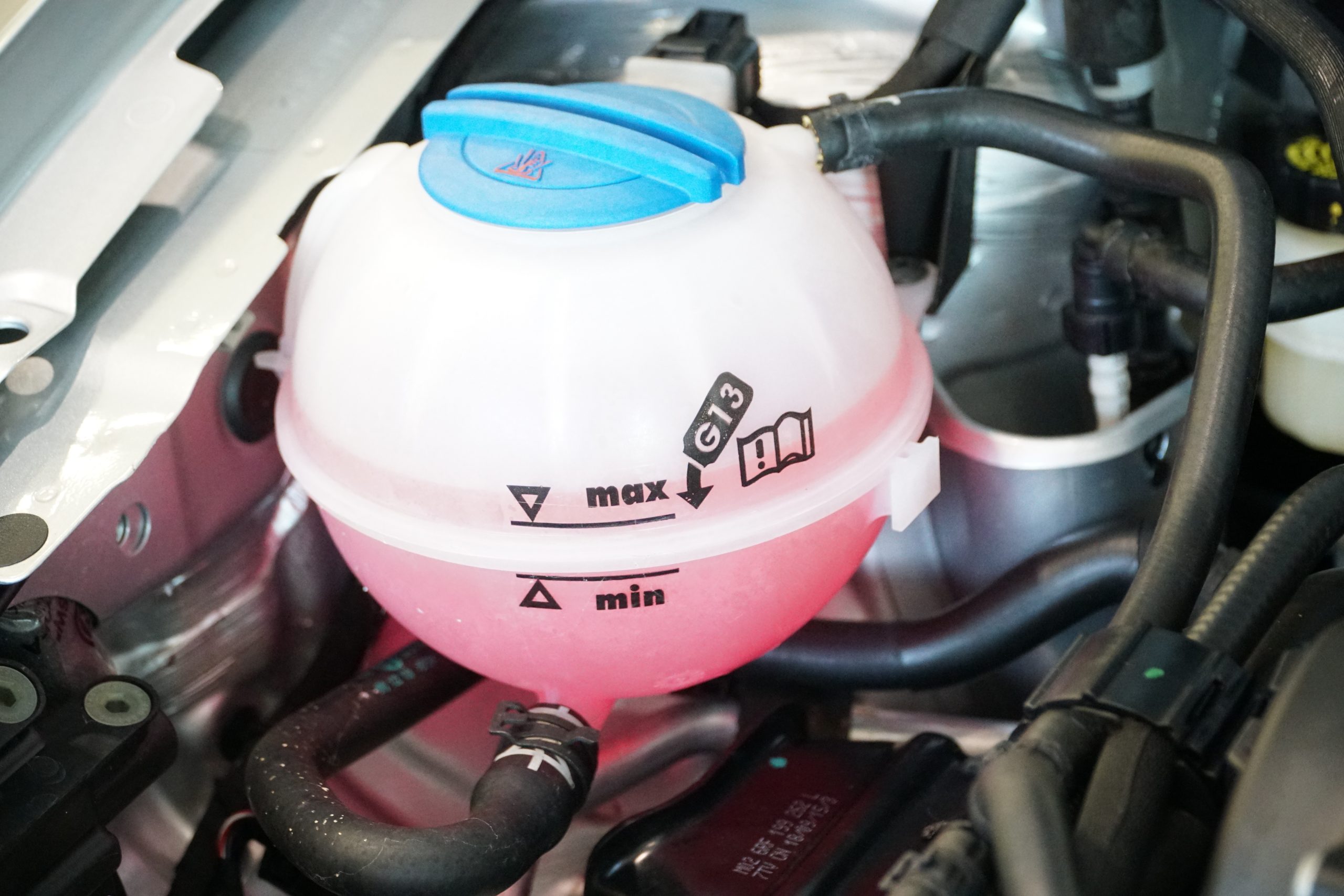
Low Coolant Levels
Coolant, or antifreeze, plays a vital role in controlling engine temperature by absorbing heat and transferring it to the radiator. Low coolant levels are a frequent cause of overheating, often due to leaks in the cooling system. Worn-out hoses, a faulty water pump, or a damaged radiator are typical culprits.
To prevent this issue, drivers should regularly check and maintain coolant levels, inspect for leaks, and adhere to their vehicle’s recommended maintenance schedule. Ensuring the cooling system remains clean and functional minimizes the risk of engine damage from overheating.
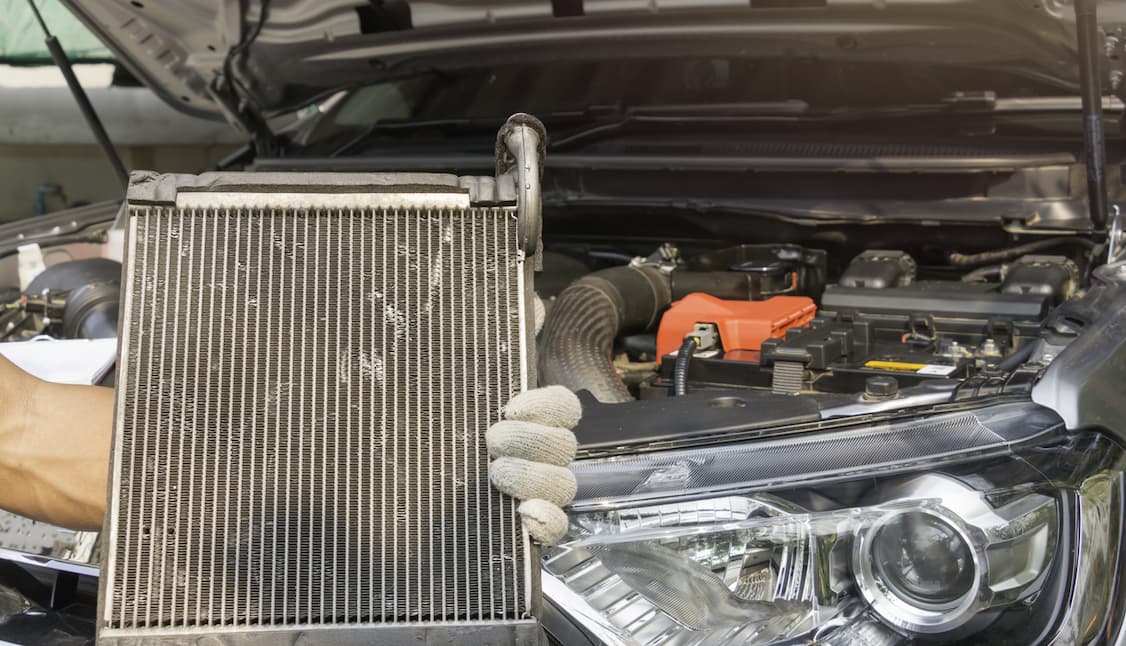
Faulty Radiator
The radiator is integral to the cooling process, dissipating heat from the coolant. Radiator issues, such as blockages, leaks, or broken fans, can significantly impede cooling efficiency, leading to rapid overheating.
Over time, sediment and debris can accumulate inside the radiator, creating blockages that reduce coolant flow. Physical damage from road debris or corrosion can also lead to leaks. To prevent these problems, clean the radiator regularly, check for visible damage, and ensure fans and thermostats are functioning properly.
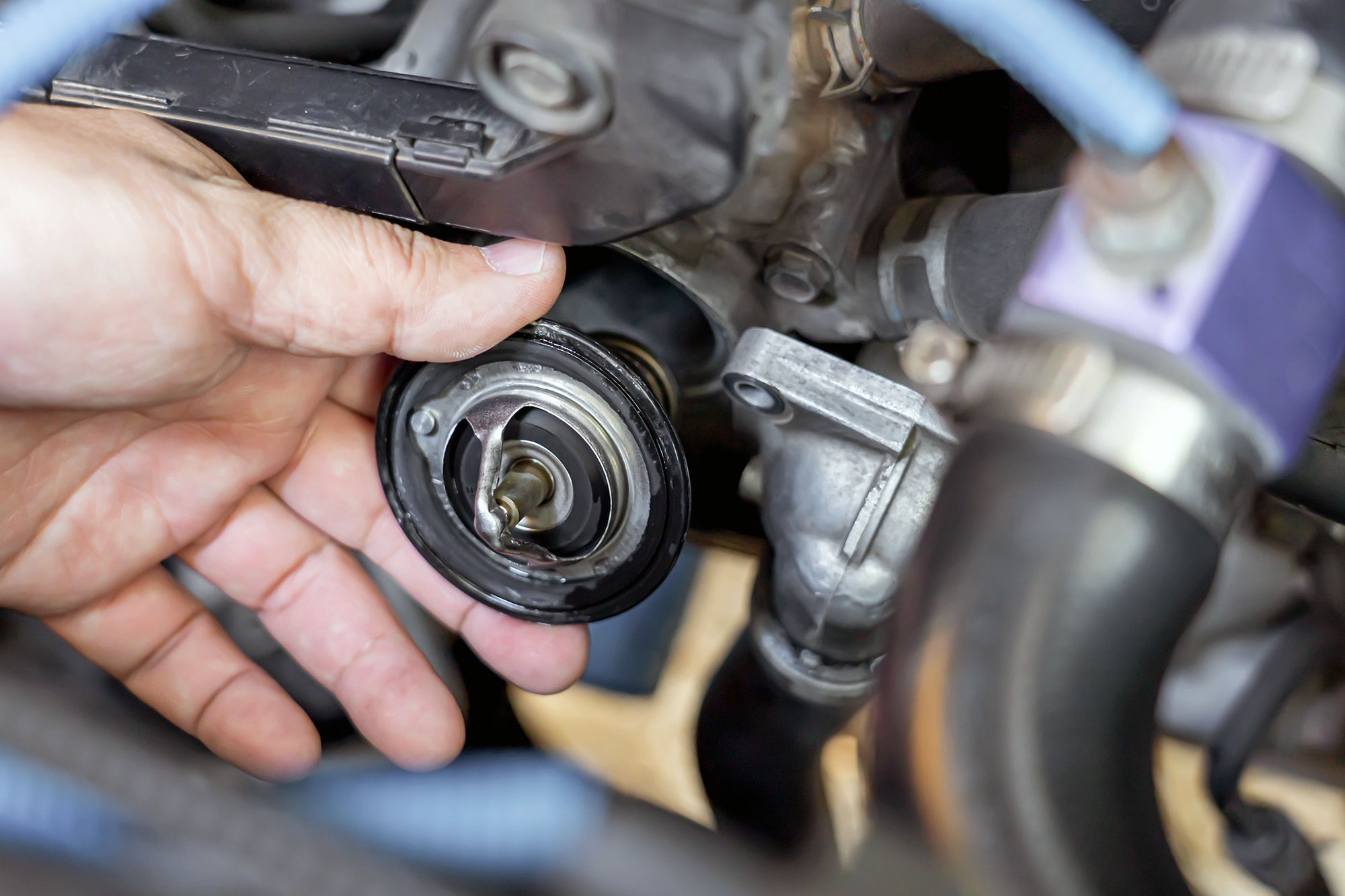
Malfunctioning Thermostat
The thermostat regulates coolant flow through the engine, ensuring it maintains a safe operating temperature. If it becomes stuck in the closed position, coolant cannot circulate, causing the engine to overheat.
Thermostats may fail due to debris buildup or corrosion. Regular inspection and timely replacement are crucial to avoiding this issue. Warning signs like fluctuating temperature readings or coolant leaks should prompt immediate action to replace a malfunctioning thermostat.
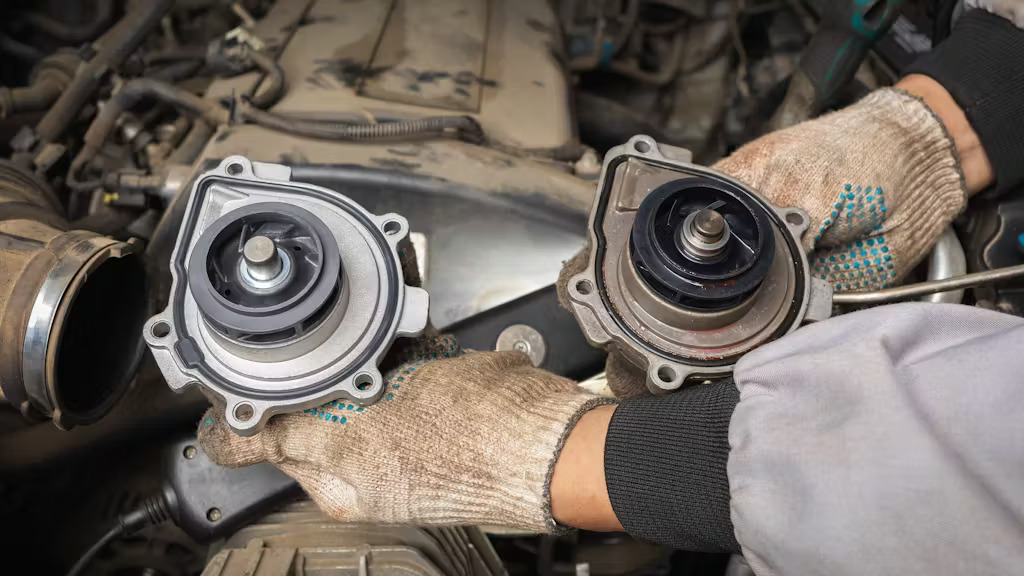
Water Pump Failure
The water pump circulates coolant through the engine, making it a critical component of the cooling system. When it fails, coolant flow ceases, and the engine quickly overheats.
Common causes of water pump failure include wear and tear, leaks, or a broken impeller. Drivers should watch for warning signs like coolant leaks, whining noises, or overheating at low speeds. Regular maintenance and prompt repairs help prevent water pump-related overheating.
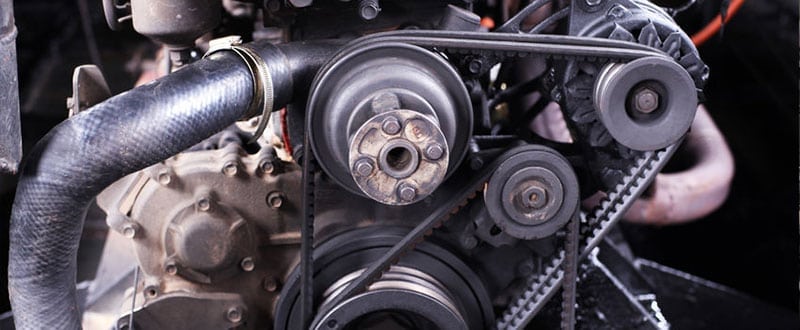
Broken Belts and Hoses
Belts and hoses play a pivotal role in the cooling system’s functionality. A broken belt or leaking hose disrupts coolant circulation, leading to overheating.
These components can degrade due to prolonged exposure to heat and pressure. Routine inspections for cracks, fraying, or leaks, combined with timely replacements, ensure that belts and hoses remain in good working condition.
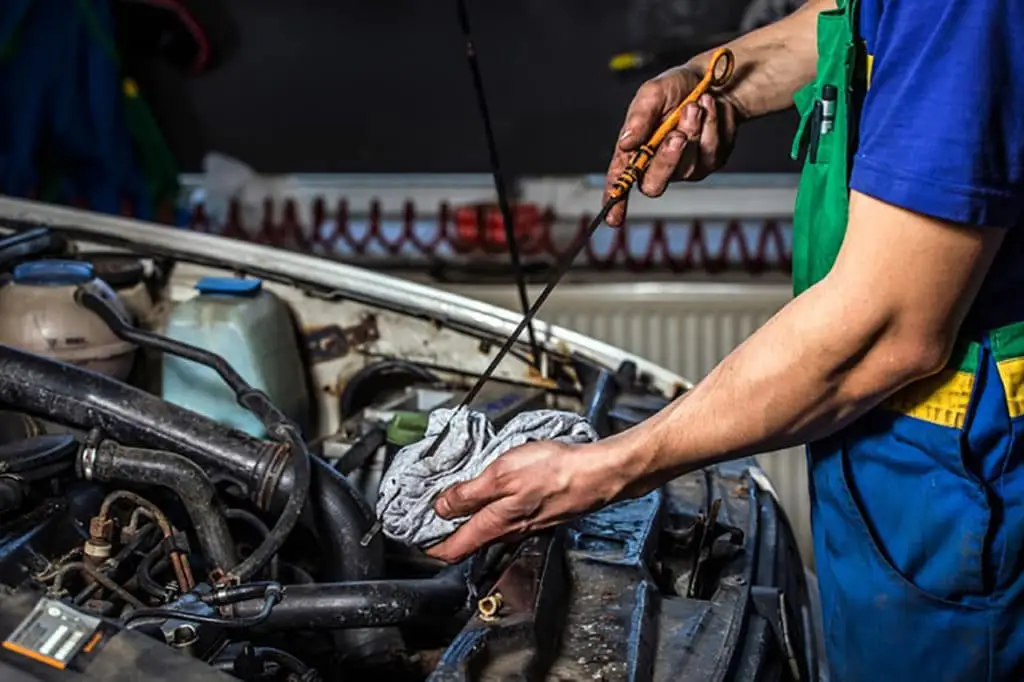
Engine Oil Issues
Engine oil contributes to cooling by reducing friction and carrying heat away from engine components. Low or dirty oil compromises this cooling effect, increasing the risk of overheating.
Regular oil changes and checks are essential to maintain oil levels and quality. Addressing leaks promptly and adhering to the manufacturer’s guidelines for oil changes help prevent overheating caused by engine oil issues.
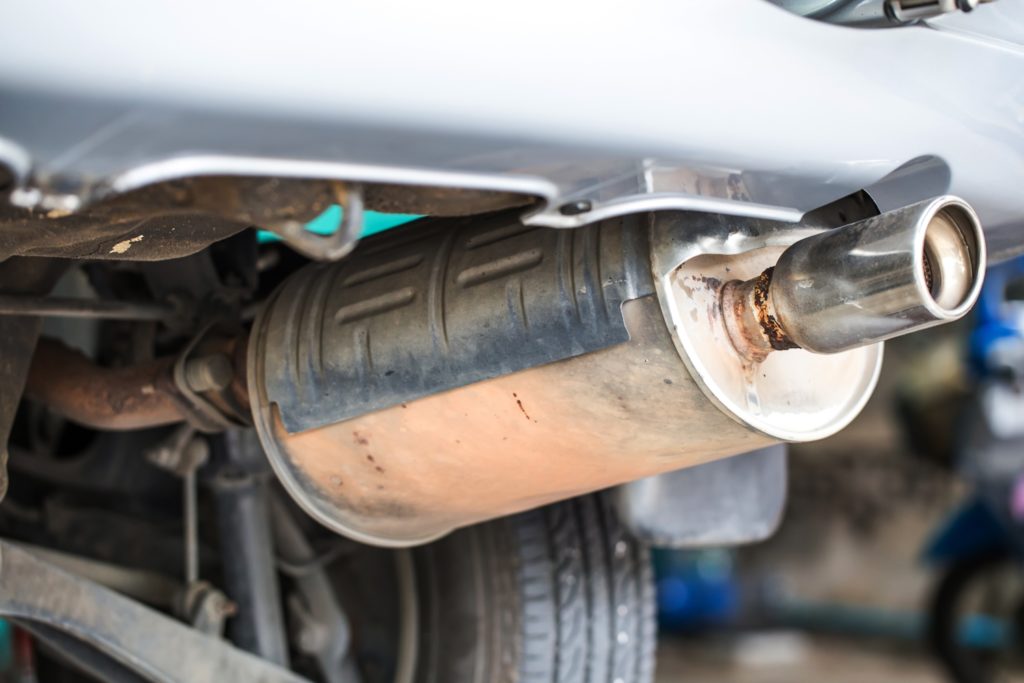
Blocked Exhaust System
A blocked exhaust system can restrict the flow of exhaust gases, increasing engine temperature and causing overheating. Carbon deposits and debris often clog components like the catalytic converter or muffler.
Routine inspections and maintenance of the exhaust system are critical. Cleaning or replacing clogged components ensures efficient exhaust flow and prevents the engine from overworking and overheating.
By understanding these common causes of engine overheating and implementing preventive measures, car owners can avoid frustrating breakdowns and costly repairs. Regular maintenance and vigilance are key to ensuring a reliable and smoothly running vehicle.

